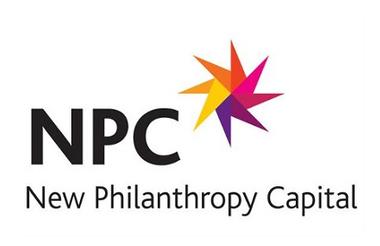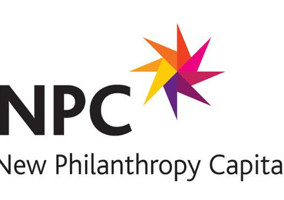Funders should offer uplifts to new and existing grants to charities during the cost-of-living crisis, according to a guide by New Philanthropy Capital (NPC).
NPC said funders must “give more and give flexibly if they’re to achieve any impact” during the cost-of-living crisis, which it said was “as big a crisis as Covid, possibly bigger”.
Confronting the cost of living crisis: How funders can mobilise says: “More people will need the help charities provide, yet charities will find it harder to support them as inflation increases their own costs and erodes the value of reserves and pre-pledged donations.”
The guide adds: “We need the kind of mobilisation among funders that we saw at the start of the pandemic, yet right now we’re not seeing this.” It calls for philanthropists “to get on and give”.
Funders ‘should remember lessons from pandemic’
NPC notes that through the Covid-19 pandemic there were significant changes in funder behaviour.
“The experience taught us all the importance of a systemic approach to strategy, more equitable collaboration, sharing data and intelligence, more flexible funding, and putting a social recovery at the heart of policymaking. We will need to remember these lessons as this new crisis takes hold,” the guide reads.
It emphasises the need for funders to offer uplifts to new and existing grants to reflect the changes in costs experienced by charities.
The guide states this is especially crucial for multi-year projects where budgets may have been agreed a long time ago, but also applies to new applications where budgets may soon be quickly outdated.
It suggests that as well as increasing grant amounts, there are many ways in which funders can give differently to “create a bigger impact”.
For example, funders may look to award all new grants on an unrestricted basis and remove restrictions on recent grants, or may update some processes to reduce administrative steps.
Advice to charities
The guide suggests charities proved during the pandemic that with the right support they can quickly pivot to meet new challenges, and now funders should be prepared to help charities adapt.
It states: “As with all crises, charities and funders must regularly communicate. Be honest about the impact inflation is having on operations, the decisions you are having to make, and how funders can help charities to keep supporting people.”
The guide says charities should explore how to strengthen their incomes to allow for the greatest flexibility, which may include managing existing income and considering where there may be new opportunities.
To bring in resources, some charities may consider liquidating existing assets, taking out a loan or social investment or updating strategies for core income streams.
The guide also notes charities may also be eligible for unclaimed Gift Aid. Every year in the UK, approximately £500m of Gift Aid goes unclaimed, the guide highlights.
It adds: “There is no one-size-fits-all recommendation for growing income from new and existing sources, so charities should approach their income portfolio with a creative mindset and consider their attitude to risk in pursuing new or non-traditional revenue streams.”
The NPC guide also recommends that charities should thoroughly review their expenditure to see where they should save and where they should spend.
Charities may need to prioritise their activity. To do so, the guide says they must make decisions informed by data and listen to beneficiaries throughout.
‘The crisis is existential’ and ‘philanthropists must step in’
Naomi Chapman, a consultant at NPC and one of the authors of the guide, said: “Life is getting more expensive for everyone, but for the poorest, for whom money was already tight, the crisis is existential.”
She added: “Of course the government should do more, but right now with both work and welfare failing to solve the problem of poverty, philanthropists must step in to prevent needless hardship.”
“Meanwhile the same factors which make life harder also constrain the charities and volunteers who try to help. A rise in the price of food, energy, and petrol is a big problem if your charity helps feed, house, or transport people. Funders therefore need to give more and give flexibly if they’re to achieve any impact.”
Related Articles












